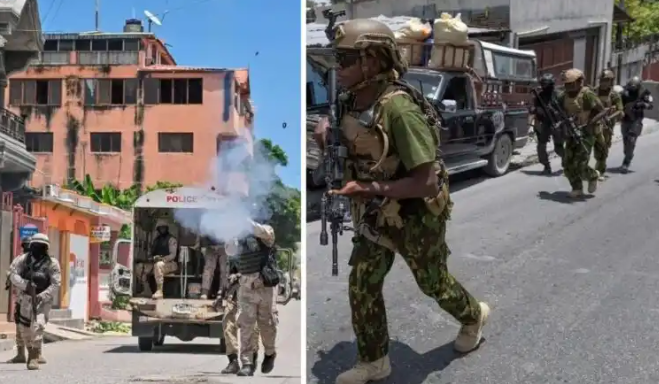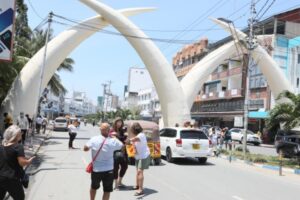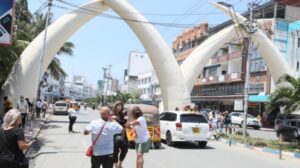Two months after the first Kenyan police officers arrived in Haiti, little progress has been made against the country’s rapacious gangs, and plans for an international policing mission appear to be stalled.
With UN backing and US funding, the mission was supposed to restore order in a country where armed groups control 80 percent of the capital, Port-au-Prince.
However, the Kenyan police, who now number 400, and their Haitian counterparts have yet to recapture any gang strongholds, causing frustration among city residents.
“The abuse from the gangs continues, and the bandits aren’t even worried,” motorcycle taxi driver Watson Laurent, 39, told AFP, adding he had been in favor of the international intervention.
“I thought they would restore peace and support our police who were overwhelmed,” he said. “I am very concerned. I can’t sleep at night because of the explosions.”
Violence-plagued Haiti was plunged into further crisis after a coordinated gang uprising in February resulted in attacks on the international airport and police stations, prompting Prime Minister Ariel Henry’s resignation.
The Multinational Security Support Mission (MSS), which Kenya had agreed to lead, was already in the works and was eventually deployed to assist Haiti in dealing with the escalating insecurity.
The first 200 Kenyans arrived in late June, followed by another 200 in July.
“The force has neither the sufficient personnel nor the equipment to launch real offensive operations against the gangs,” Diego Da Rin, Haiti analyst at the NGO International Crisis Group, told AFP.
Kenyans and the Haitian National Police have guarded key buildings and facilities in Port-au-Prince, while gangs accused of rape, murder, and kidnapping have largely maintained their control.
The Kenyan police were only involved in one major operation, at the end of July, when the 400-strong Mawozo gang took over the town of Ganthier, 28 kilometers (18 miles) east of Port-au-Prince.
However, prior to the arrival of the security forces, gang members fled the town, only to retake it once the Kenyan and Haitian police left.
Haitians’ Views
“The MSS needs to get to work,” said Yverose Amazan, a shopkeeper. “This situation has gone on too long.”
The prospects may look grim, but Amazan hopes the police mission “does something” by the time school starts in mid-September.
“I would like to be able to move around my country, as was the case before the proliferation of the gangs,” she said.





















Add Comment